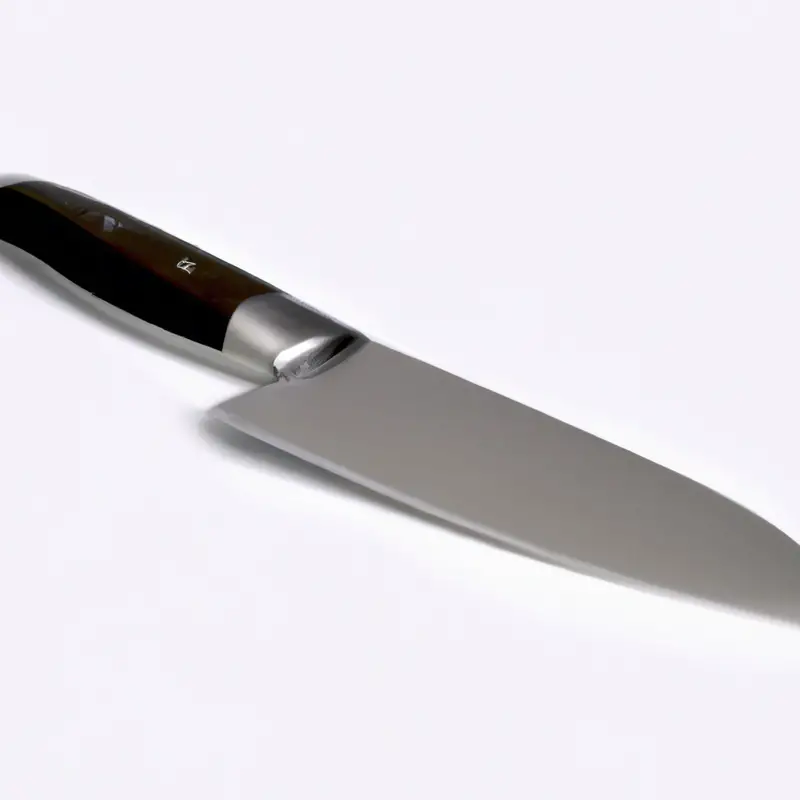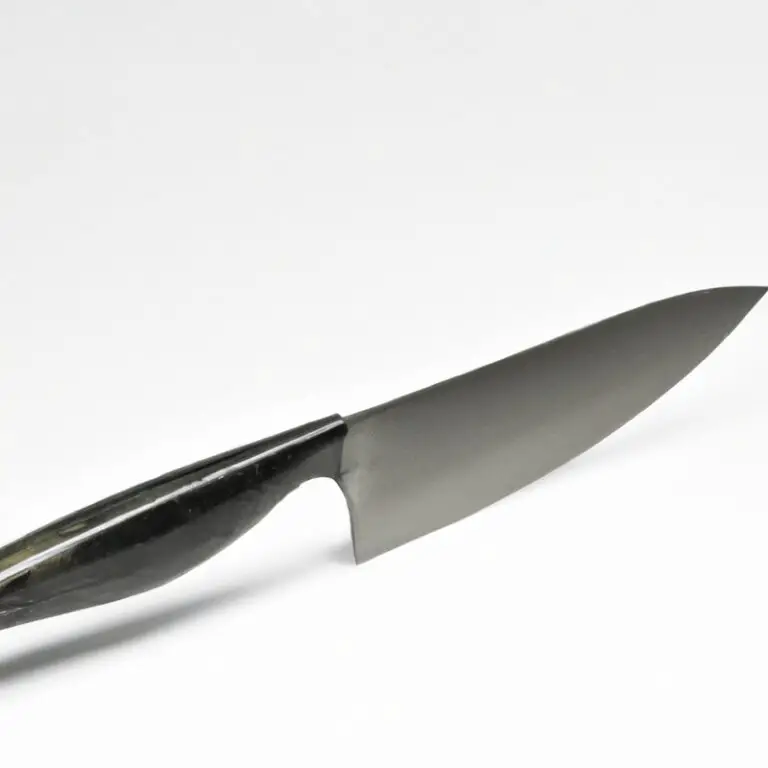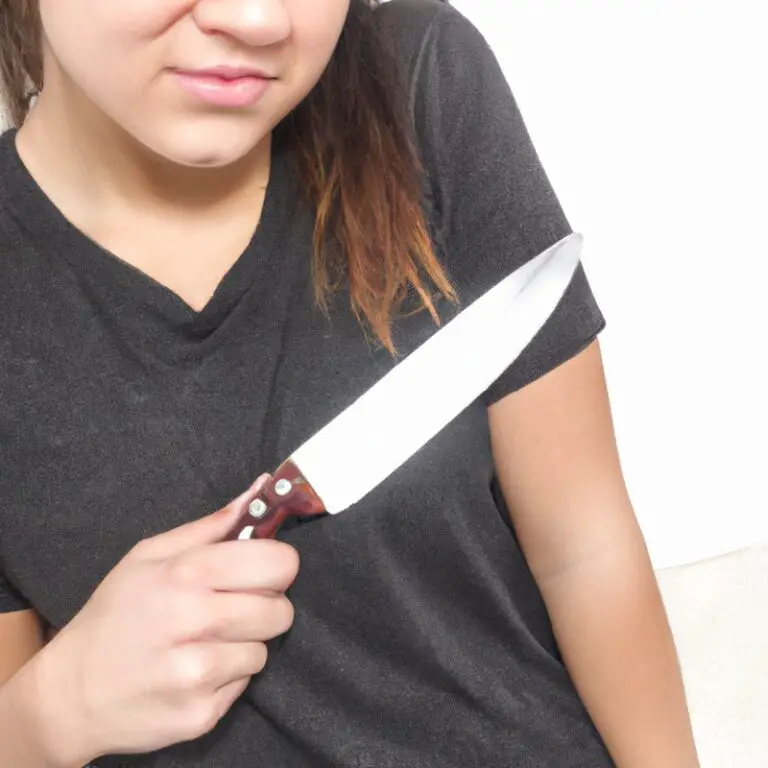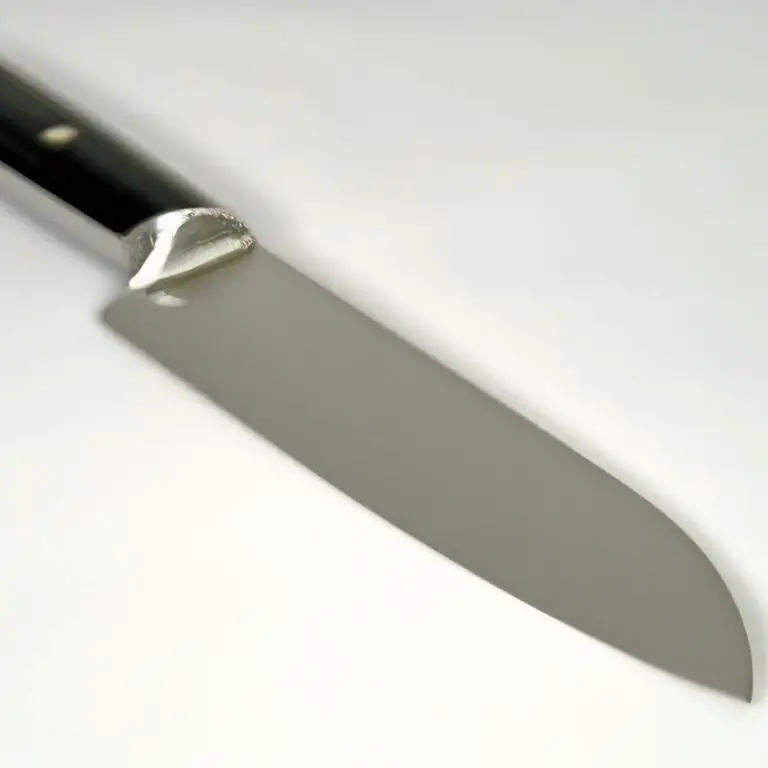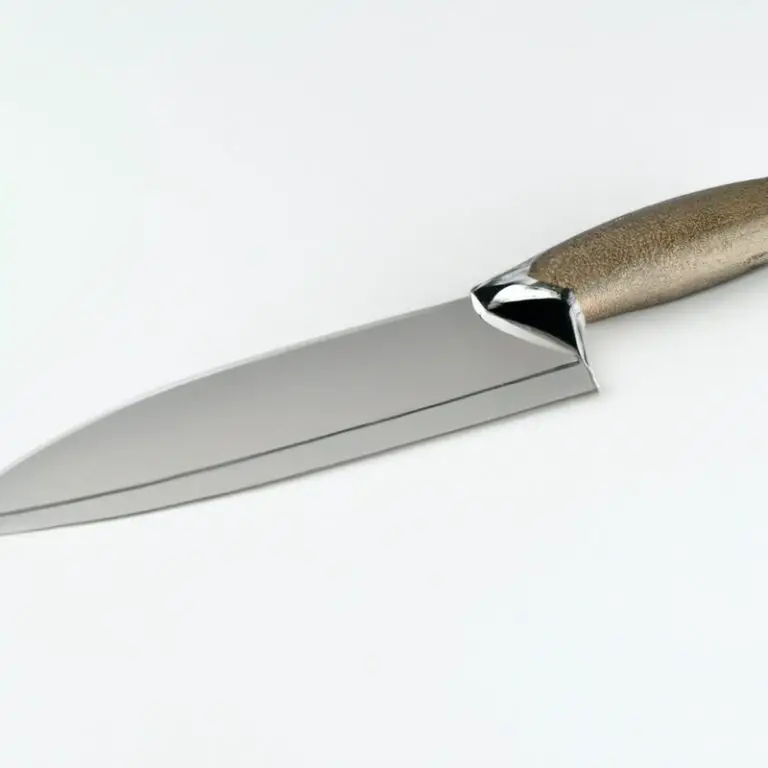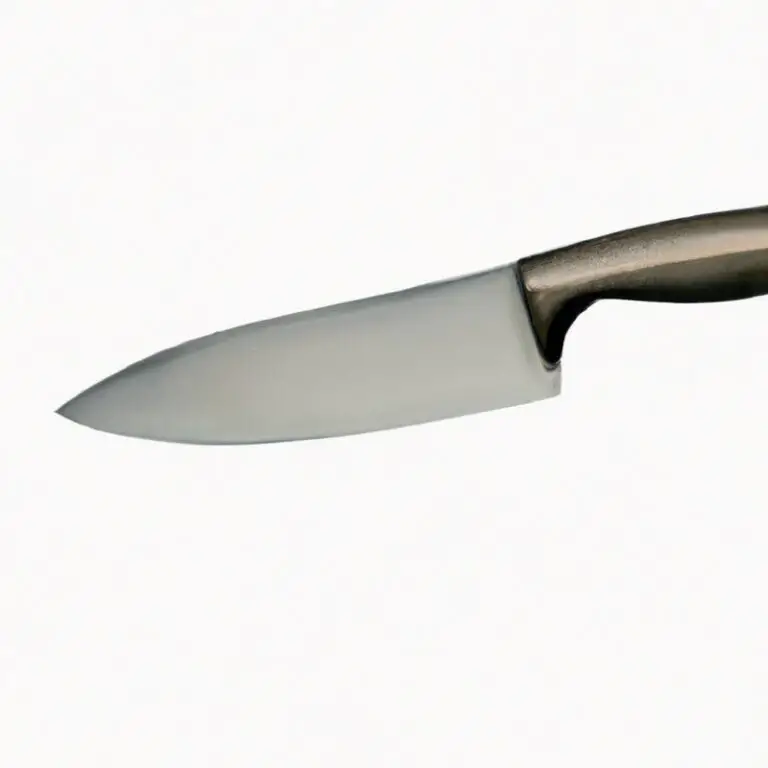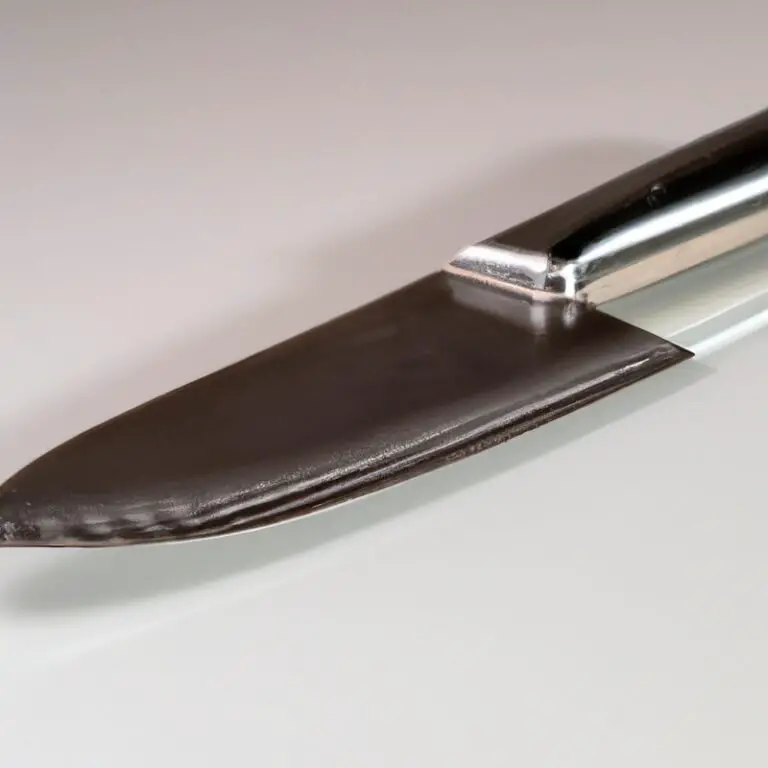How Can I Prevent My Paring Knife From Rusting? Tips!
Key Takeaways:
- Keep your paring knife dry after use to prevent rust from forming.
- Use a rust-resistant material like stainless steel when purchasing a paring knife.
- Apply a thin layer of mineral oil regularly to the blade to prevent oxidation.
- Avoid exposing the paring knife to acidic or salty foods, as they can accelerate rust formation.
Are you tired of discovering rust on your beloved paring knife? Rust not only deteriorates the aesthetic value of your cutlery but also poses health risks.
Understanding how rust forms is crucial in preventing its occurrence.
Proper hand washing and drying techniques, the right cutting board selection, oiling, storing practices, and sharpening your knife play an essential role in maintaining your paring knife’s longevity. In this article, I will share helpful tips to prevent rust buildup and common mistakes to avoid, ensuring your paring knife stays healthy for years to come.
| Method | Description |
|---|---|
| Baking soda and water | Mix baking soda with water to make a paste and apply it to the knife. Leave it on for 10-15 minutes before washing it off. |
| Vinegar and water | Mix vinegar with water and soak the knife in the solution for 5-10 minutes before washing it off. |
| Lemon juice and salt | Mix lemon juice with salt to create a paste and apply it to the knife. Leave it on for a few minutes before washing it off. |
| Oil coating | Apply a thin layer of food-grade oil to the knife to create a protective barrier against moisture and rust. |
| Drying and storing | Ensure that the knife is completely dry before storing it in a dry and ventilated area. |
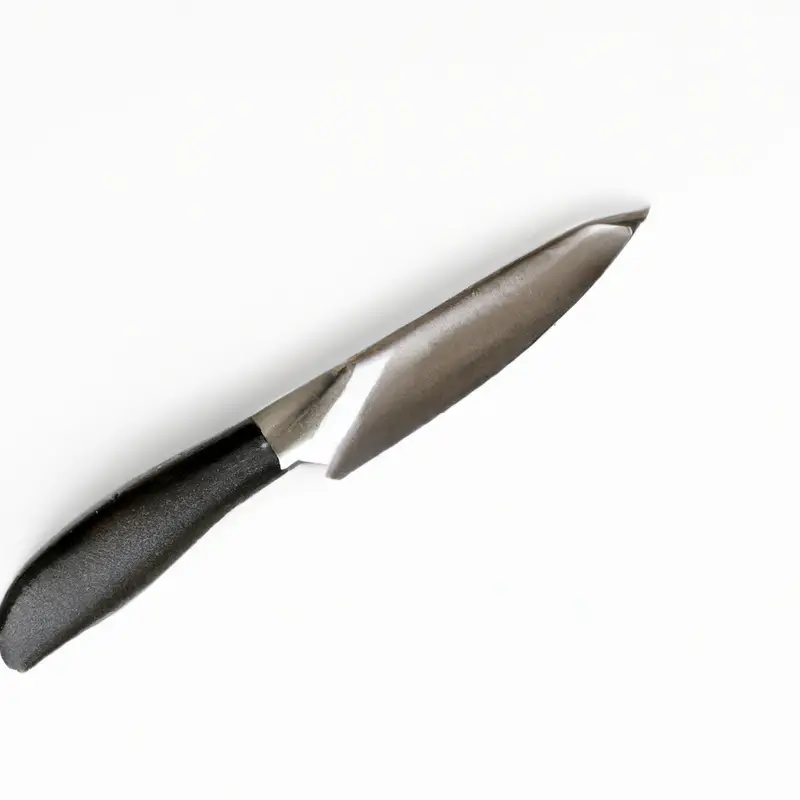
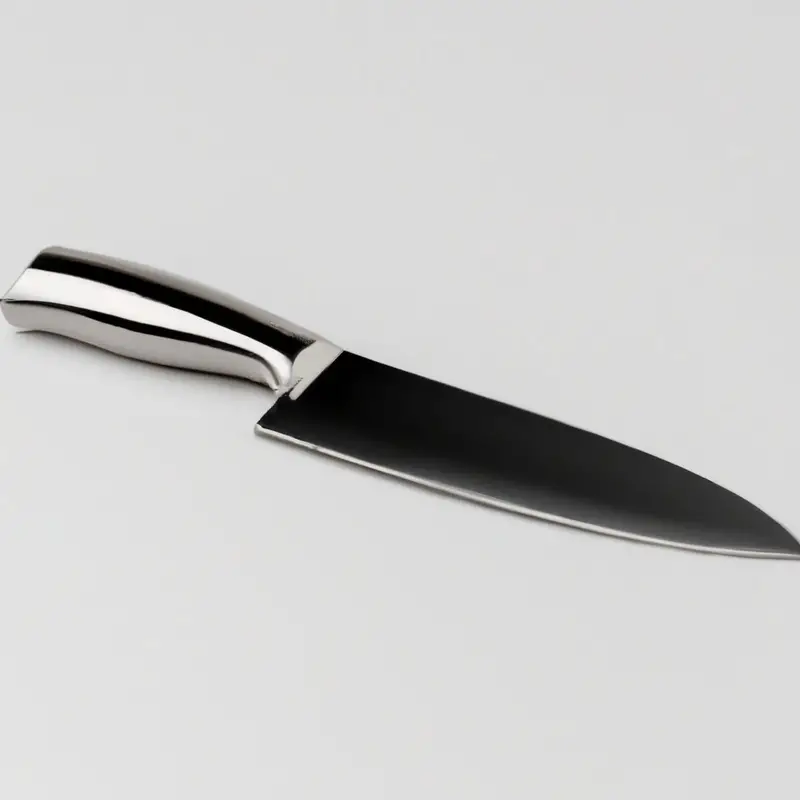
Understanding Rust: What Causes Paring Knives to Rust
Paring knives are often made of steel, which is prone to rusting when exposed to certain conditions. Oxidation, humidity, and salt are the main culprits of rust.
When oxygen comes in contact with the metal, it creates iron oxide, which is rust.
When the knife is left in a damp environment, such as a sink full of water or a dishwasher, it promotes rust formation. Salt also speeds up the oxidation process and increases the chances of rust.
Acidic foods can also cause rusting by wearing away the protective layer of the knife.
Understanding the causes of rust is key to preventing it from forming on your paring knife.
Proper Hand Washing Techniques: Keep Your Knife Clean and Dry
Proper hand washing is crucial in keeping your paring knife clean and rust-free. Use warm water and soap to wash your knife after every use.
Scrub both sides of the blade and handle with a soft-bristled brush or sponge to get rid of any food particles and bacteria that may cause rusting.
Rinse your knife thoroughly with warm water and make sure all the soap is removed. Finally, dry your knife thoroughly using a dish towel or paper towel immediately after washing to prevent moisture buildup and rusting.
Remember, leaving your knife wet or soaking it in water can lead to rusting.
Drying Your Knife: Importance of Drying and Towel Selection
Drying your knife is crucial in preventing rust. After washing, thoroughly dry your knife with a towel to remove any moisture left on the blade.
The type of towel you use can also affect the knife’s condition.
Avoid using rough or abrasive towels which can scratch the blade and leave it susceptible to rust. Instead, use soft and absorbent towels to gently dry the knife.
Remember to air-dry your knife for a few minutes before storing it to ensure that there is no moisture left on the blade, which can cause rusting over time.
By practicing proper drying techniques and using the right towel, you can help prevent rust from forming on your paring knife.
Using the Right Cutting Board: Avoid Acidic Surfaces
Choosing the right cutting board is crucial in preventing rust buildup on your paring knife. Avoid using cutting boards made of soft woods, like pine, or surfaces with high acidity levels, like marble or ceramic.
Acidic surfaces cause corrosion on metal blades, leading to rust formation.
Opt for cutting boards made of bamboo, plastic, or tempered glass, as they are nonporous and less likely to retain moisture. Additionally, be sure to clean and dry your cutting board thoroughly after each use to prevent bacteria growth and prolong the lifespan of both your knife and board.
Applying Oil: Protect Your Knife and Prevent Rust Buildup
Applying oil to your paring knife is an excellent way to protect it from rust buildup. Vegetable oil, mineral oil, and even specialty knife oils can do the job.
After washing and drying your knife, apply a thin layer of oil to the blade, making sure to cover all surfaces thoroughly.
Use a clean cloth or paper towel to spread the oil evenly and wipe off any excess. The oil creates a barrier against moisture, preventing rust from damaging the blade.
It also helps to lubricate the knife, making slicing and chopping easier.
Don’t forget to reapply the oil regularly, especially if you use your knife frequently or store it in a humid environment. A well-oiled knife will last longer and perform better.
Storing Your Knife Properly: What to Avoid and Best Practices
Storing your paring knife properly is crucial to prevent rust buildup. Here are some best practices to follow:
- Store your knife in a dry place with low humidity to avoid moisture buildup.
- Avoid storing your knife in a drawer where it can rub against other utensils or get knocked around.
- Use a knife block, magnetic strip, or blade cover to protect the edge and prevent scratches.
- Keep the cutting edge away from direct contact with hard surfaces or other objects.
- Avoid storing your knife with food residues on the blade as it can attract bacteria and cause corrosion.
By following these simple storage practices, you can ensure your paring knife stays rust-free and sharp for a long time.
Sharpening Your Knife: How Dullness Can Lead to Rusting
Dull knives are more prone to rusting than sharp ones. When a knife is dull, it can easily get nicked or chipped, creating rough areas on the blade’s surface.
These rough patches can trap moisture, which leads to rust forming over time.
Additionally, dull knives are generally more difficult to clean, which can also increase the buildup of moisture on the blade. To prevent rust from forming on your paring knife, make sure to regularly sharpen it using the appropriate tools and techniques.
Not only will a sharp knife be easier to use and clean, but it will also be less likely to rust.
Helpful Tips and Tricks: Maintaining Your Paring Knife’s Health
Helpful Tips and Tricks: Maintaining Your Paring Knife’s Health
- Clean your knife immediately after use and use a soft sponge or cloth to avoid scratches.
- Dry your knife thoroughly after washing and use a towel with good absorbency.
- Avoid using acidic surfaces such as ceramic or glass cutting boards that can harm the blade.
- Apply oil regularly to maintain your knife’s health and protect it against rust and corrosion.
- Store your knife in a dry and ventilated area, away from other metallic objects, acid or moisture.
- Sharpen your knife regularly to avoid rust buildup caused by dullness.
- Avoid improper use such as prying and scraping hard materials to prevent damaging your knife’s edge.
- Watch out for signs of rust on your blade such as visible blemishes, discoloration, and dullness. Replace your knife if the damage is irreversible.
Common Paring Knife Mistakes: What To Avoid to Prevent Rust
To prevent rusting on your paring knife, it’s essential to avoid common mistakes. Some common mistakes to avoid include leaving your knife wet, washing it in the dishwasher, using abrasive materials to clean it, leaving it in a damp environment, and leaving it in contact with acidic substances.
Furthermore, avoid storing your knife in a drawer or container with other metallic objects that can cause scratches, dents, and rusting.
Instead, store it in a knife block or sheath to prevent any damage. Lastly, avoid sharpening your knife with a dull honing steel.
A dull honing steel can damage the knife, leading to rusting, and cause injury when in use.
Always use a sharpening stone to keep your paring knife sharp and in excellent condition.
When to Replace Your Knife: Signs of Irreversible Rust Damage
When a paring knife has irreversible rust damage, there is no way to fix it without compromising the blade’s integrity. It’s best to replace the knife once any of the following signs of irreversible rust damage appear:
- Pitting: Small pits or holes on the blade’s surface that cannot be removed through sharpening or sanding.
- Discoloration: A lack of shine or appearance of rust on the blade that cannot be removed by scrubbing or polishing.
- Jagged blade edges: Rust can cause the metal to chip or become uneven, causing the blade to become jagged or rough.
- Inflexible blade: Rust can weaken the blade, causing it to bend or become inflexible, making it difficult to use and potentially dangerous.
- Foul smell: If the knife has a persistent, unpleasant odor despite proper cleaning, it may indicate the growth of harmful bacteria or other microorganisms due to rust damage.
By replacing a rusted paring knife, you can ensure a safer and more efficient cooking experience. It’s important to regularly inspect your knives for any of the signs mentioned above and invest in high-quality knives to prevent rust damage in the first place.
Final Verdict
Preventing your paring knife from rusting requires a combination of proper maintenance and smart decision-making. By following the recommendations outlined in this article, including washing and drying your knife thoroughly, using the right cutting board, and applying oil, you can protect your knife and extend its lifespan.
Additionally, it’s essential to avoid common mistakes that can contribute to rusting, such as leaving your knife wet or exposing it to acidic surfaces.
By taking a proactive approach to maintaining your paring knife’s health, you can help ensure that it serves you well for years to come. Remember, a well-maintained paring knife is not only safer to use, but it also makes for a more delightful cutting experience.
Trust in the reliability of this information and take action today to keep your paring knife rust-free.

